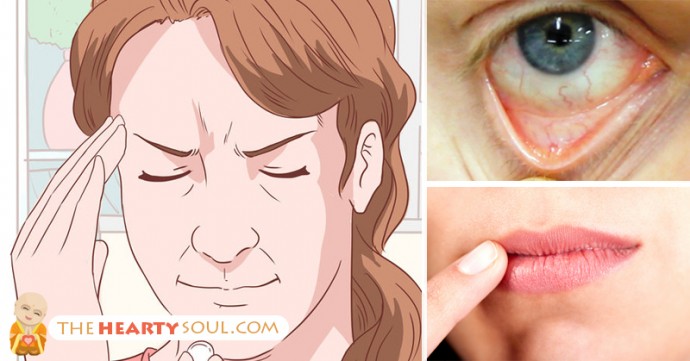
You may have recently heard about the importance of having enough riboflavin in your diet. But what is riboflavin? Riboflavin is simply another name for vitamin B2. It’s one of eight B vitamins that your body uses to metabolize fat and protein and to convert carbs into the glucose your cells require for energy. Your nerves and brain need riboflavin to function properly and it also helps keep your skin, eyes, hair, and liver healthy. As a water-soluble vitamin, your body doesn’t store it, so you need to regularly get enough in your diet.
Riboflavin Health Benefits
If you feel good, you’re probably doing something right in terms of nutrition. That means getting enough riboflavin and all the other key nutrients your body needs. When it comes to staying healthy, riboflavin is important because it boasts the following benefits.Migraine: Adults and kids who don’t get enough riboflavin tend to experience frequent headaches and even migraines. However, it seems that when a person gets enough riboflavin, the number of headaches is. [1] One trial of 55 patients showed that those who took 200-400 mg of riboflavin had substantially fewer migraines and headaches than those given the placebo. This reduced both the frequency and intensity of the headaches.[2]
Cataracts: According to the National Institute of Health, people who get more riboflavin along with niacin may have a lower risk of getting cataracts. [3] More research is needed to really know the interaction of riboflavin with the eye.
Iron Absorption: Iron is an important mineral for growth and development. Iron deficiency can lead to anemia, particularly in women who are pregnant or nursing and young children. Riboflavin helps the body absorb both iron and zinc and also helps make them both more available to your body. [4] [5] This increase in absorption helps to prevent iron deficiency and other accompanying symptoms.
Red Blood Cells: Riboflavin is a key factor in the body’s production of red blood cells. [6]
Riboflavin also plays an important role in how your body functions. It helps lower homocysteine levels, which can help protect against heart disease [7]. It also improves muscle function and helps to prevent cramping.
Dietary Sources of Riboflavin
Some of the best sources of riboflavin are almonds, brewer’s yeast, broccoli, spinach, eggs, milk, yogurt, wild rice and organ meats. Below, you will see some of the best sources of riboflavin. Keep in mind that it is a water soluble vitamin, so when you boil foods with riboflavin, you can lose up to half of this key nutrient (and other water-soluble vitamins) from the food. In other words, enjoy raw food when possible.Selected Food Sources of Riboflavin [8]
| Food | Milligrams per serving | Percent DV* |
| Beef liver, pan fried, 3 ounces | 2.9 | 171 |
| Breakfast cereals, fortified with 100% of the DV for riboflavin, 1 serving | 1.7 | 100 |
| Oats, instant, fortified, cooked with water, 1 cup | 1.1 | 65 |
| Yogurt, plain, fat free, 1 cup | 0.6 | 35 |
| Milk, 2% fat, 1 cup | 0.5 | 29 |
| Beef, tenderloin steak, boneless, trimmed of fat, grilled, 3 ounces | 0.4 | 24 |
| Clams, mixed species, cooked, moist heat, 3 ounces | 0.4 | 24 |
| Mushrooms, portabella, sliced, grilled, ½ cup | 0.3 | 18 |
| Almonds, dry roasted, 1 ounce | 0.3 | 18 |
| Cheese, Swiss, 3 ounces | 0.3 | 18 |
| Rotisserie chicken, breast meat only, 3 ounces | 0.2 | 12 |
| Egg, whole, scrambled, 1 large | 0.2 | 12 |
| Quinoa, cooked, 1 cup | 0.2 | 12 |
| Bagel, plain, enriched, 1 medium (3½”–4″ diameter) | 0.2 | 12 |
| Salmon, pink, canned, 3 ounces | 0.2 | 12 |
| Spinach, raw, 1 cup | 0.1 | 6 |
| Apple, with skin, 1 large | 0.1 | 6 |
| Kidney beans, canned, 1 cup | 0.1 | 6 |
| Macaroni, elbow shaped, whole wheat, cooked, 1 cup | 0.1 | 6 |
| Bread, whole wheat, 1 slice | 0.1 | 6 |
| Cod, Atlantic, cooked, dry heat, 3 ounces | 0.1 | 6 |
| Sunflower seeds, toasted, 1 ounce | 0.1 | 6 |
| Tomatoes, crushed, canned, ½ cup | 0.1 | 6 |
| Rice, white, enriched, long grain, cooked, ½ cup | 0.1 | 6 |
Riboflavin Deficiency
Inadequate nutrition is a big problem with big consequences. A few common symptoms of riboflavin deficiency include… [6] [9]- Fatigue
- Your eyes tire quickly
- Throat swelling and soreness
- A swollen tongue with a magenta, or deep red color
- Cracks and sores around the corner of the mouth
- Digestive trouble
- Slowed growth in children or during pregnancy
- An unusual sensitivity to light
How to Consume More Riboflavin
Riboflavin is widely available on its own or as part of B-complex vitamins. Supplementing riboflavin in combination with other antioxidants and metabolic boosters is a great way to promote good health, especially if your diet isn’t providing the nutrients you need. I personally recommend Poly-MVA® which offers riboflavin as one of the key ingredients. It’s a great multivitamin, multimineral, and amino acid supplement that can help support your immune system and boost your energy levels.Click Here For More Articles

No comments:
Post a Comment